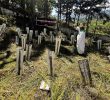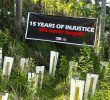During the year, the government did not release any persons whom NGOs claimed were political prisoners.
The government permitted access to alleged political prisoners by international humanitarian organizations.
Civil Judicial Procedures and Remedies
The judiciary is independent and impartial in civil matters. Complainants have access to local trial courts to seek damages for, or cessation of, human rights abuses. There are administrative remedies as well as judicial remedies for alleged wrongs; however, corruption is widespread in the judiciary, and cases were often dismissed. The Commission on Human Rights keeps a database of alleged human rights violators, including those in the AFP or PNP. The CHR also investigates cases of alleged human rights violations. However, it has no prosecutorial power and can only refer cases with probable cause to local prosecutors.
f. Arbitrary Interference with Privacy, Family, Home, or Correspondence
The law provides that a judge may issue search warrants on a finding of probable cause; however, while the government generally respected restrictions on search and seizure within private homes, searches without warrants occurred. Judges declared evidence obtained illegally to be inadmissible.
The government generally respected the privacy of its citizens; however, leaders of communist organizations and rural-based NGOs complained of what they described as a pattern of surveillance and harassment.
Forced resettlement of urban squatters, who made up at least 30 percent of the urban population, continued during the year. The law provides certain protections for squatters; eviction was often difficult, especially because politicians recognized squatters’ voting power. Government relocation efforts were constrained by budget problems, and the issuance of land titles to squatters targeted by displacement was limited, but the government successfully completed a two-year program to relocate in new housing approximately 20,000 squatter families from what will be a new “Northrail” project from Manila to Northern Luzon.
g. Use of Excessive Force and Other Abuses in Internal Conflicts
Some citizen groups complained that the AFP, in confronting the terrorist ASG and NPA, illegally detained citizens, destroyed houses, displaced residents, and shelled villages. NGOs also accused the police of wrongful detention, excessive force, and extrajudicial killings (see section 1.c.).
On January 31, a clash between the AFP and NPA rebels in Santa Ignacia, Tarlac, resulted in at least 10 casualties; three of whom were civilians. The human rights group Karapatan alleged that the military was responsible for the civilian deaths. On May 18, AFP fire in an encounter with NPA rebels in Bulan, Sorsogon, allegedly killed a civilian.
On a number of occasions, ASG and RSM bombings killed and wounded civilians. On October 10, bombs in Makilala, North Cotabato, and in Tacurong, Sultan Kudarat, killed eight persons and wounded at least 30 others. On October 18, an explosion near a police camp in Jolo, Sulu, killed at least three persons. The authorities identified the ASG as responsible for these attacks. Throughout the year, clashes between the AFP, Jemaah Islamiyah, and ASG, mostly in the Zamboanga peninsula and Sulu archipelago, contributed to the displacement of civilians.
During the year, the NPA killed political activists, mayors, other civilians, and military and police personnel. The NPA also harassed businesses and burned buses to enforce the collection of “revolutionary taxes.” On July 24, NPA personnel detonated two landmines on a highway in Surigao del Sur Province, seriously wounding five passengers in a jeepney and 10 pedestrians. Subsequently, a spokesman for the NDF said that the injuries to civilians were unfortunate but that the NPA will not give up its “legitimate right” to use landmines. The AFP reported that the NPA killed at least 191 AFP and PNP personnel from January to December. The NPA continued actively to recruit minors both as combatants and noncombatants (see section 5).
Extrajudicial Killings, Terrorism









